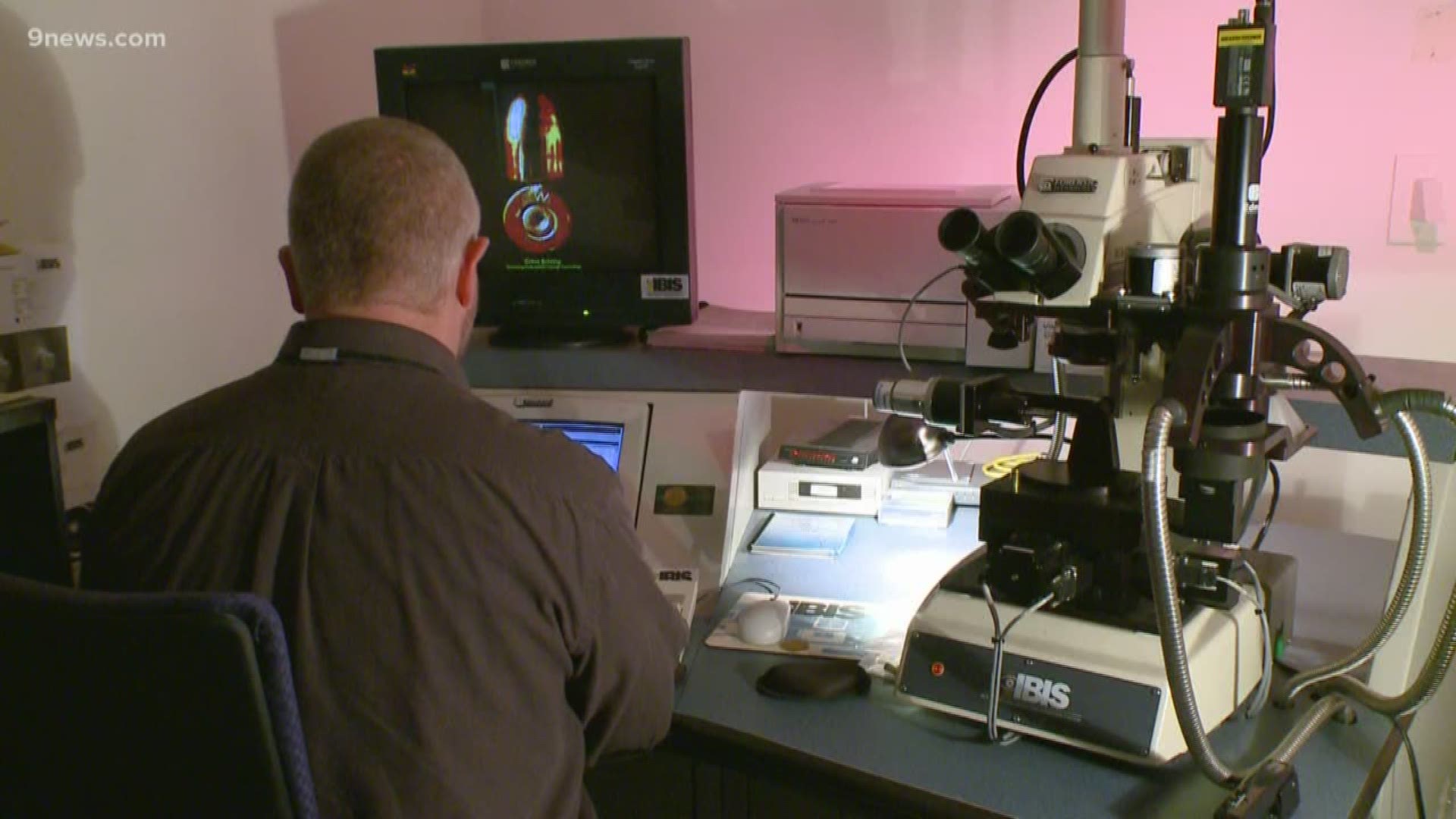DENVER — Funds from a new $500,000 grant will be used to advance work on 72 cold cases in Denver where a suspect has been identified but prosecutors have been unable to file charges, the Denver District Attorney's Office announced Wednesday.
The money from the three-year grant from the National Institute of Justice (NIJ) will be split among the Denver Police Department (DPD), its crime lab and the Denver DA's office. The grant will allow the crime lab to pay overtime so forensic scientists may identify, locate, collect, process and analyze evidence to assist prosecutors.
“These violent crime cold cases are among the most challenging of all cold cases,” said Denver District Attorney Beth McCann. “The potential for more than 70 families to see justice is powerful and exciting and possible thanks to this new funding.”
Denver’s Integrated Cold Case Project launched in 2004 and has resulted in DNA analysis of more than 1,100 cases. During that time 130 cases were filed, according to the DA's Office.
RELATED: 'God took him before we got the chance': Suspect identified in 1981 killing of 18-year-old woman
The Cold Case Project has been especially successful at identifying and convicting several serial rapists, according to the DA's office.
“We reached a critical milestone in 2017 when the Crime Lab finished testing of all cold case sexual assaults which was made possible in part thanks to earlier NIJ grants,” said Dr. Gregory LeBerge, Director of the Denver Crime Lab. “That work resulted in six serial killers being identified and linked to cases across Colorado and the United States.”
One such case was the 2011 conviction of Roderick Elias, who raped and killed a young woman in 1980.
“This grant will allow DPD’s Cold Case Unit to dedicate additional resources to investigating 72 cold cases that occurred between 1970 and 2016 and that are comprised of eight sexual assaults and 64 homicides,” said Denver Police Chief Paul Pazen. “The goal is to advance these investigations to a point where they are ready for a case filing presentation to the DA’s Office.”
DPD's cold case unit will apply the funding to utilize overtime and advance investigations where a suspect is identified and potential prosecution is pending. The DA's office will add a deputy to its existing Cold Case unit.
This is the third grant Denver has received from the NIJ, totaling more than $1 million.
"This grant is going to go a long way to giving some families some renewed hope that justice is going to get done in their case," said Robert Wells, executive director of Families of Homicide Victims and Missing Persons (FOHVAMP).
The organization advocates for resolving cold cases and works with victims' families, including assistance with communication between victims' loved ones and law enforcement, Wells explained.
He, too, is the family member of a homicide victim. Wells said his brother was killed in Boulder in the early 1980s, and the killer has not been arrested.
"Anytime a grant like this comes out, and a police department embraces it, it shows a progressive mindset and a willingness to not allow these cases to go asunder, or put in a round-file somewhere never to be seen again," he said.
Denver Police have not said which of the specific cold cases are included in the new list assisted by the grant.
"We are hopeful it's going to be one of our cases," Wells said, referring to the Denver families represented within FOHVAMP.
"The biggest frustration as a co-victim, they're [law enforcement] not going to come right out and tell us what they're doing until they're ready to. We as co-victims have to be patient."
SUGGESTED VIDEOS | Local stories from 9NEWS

